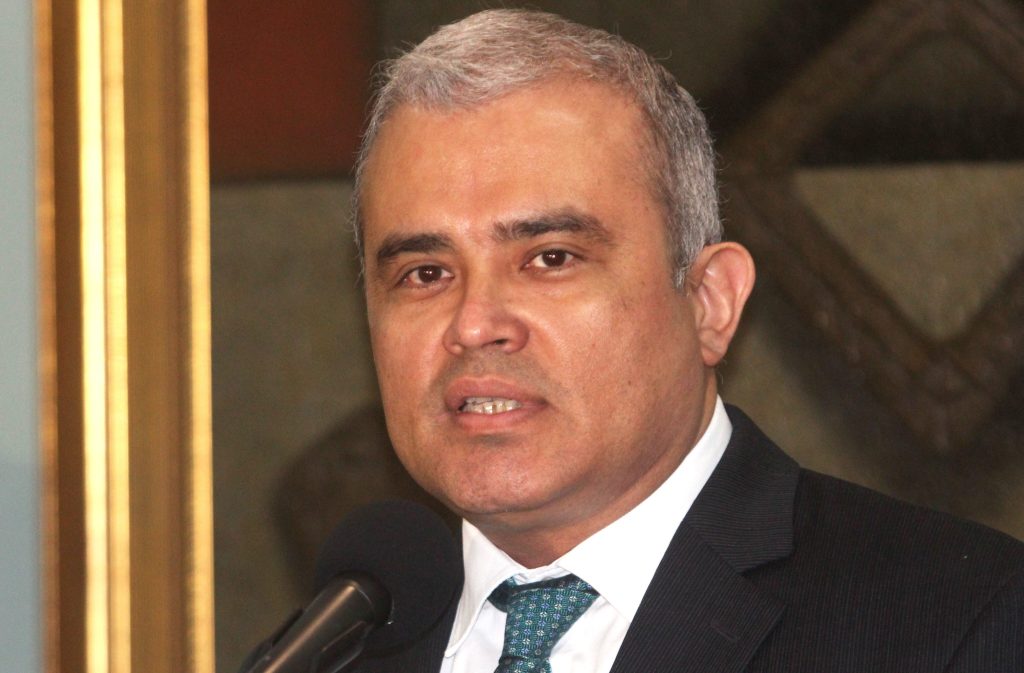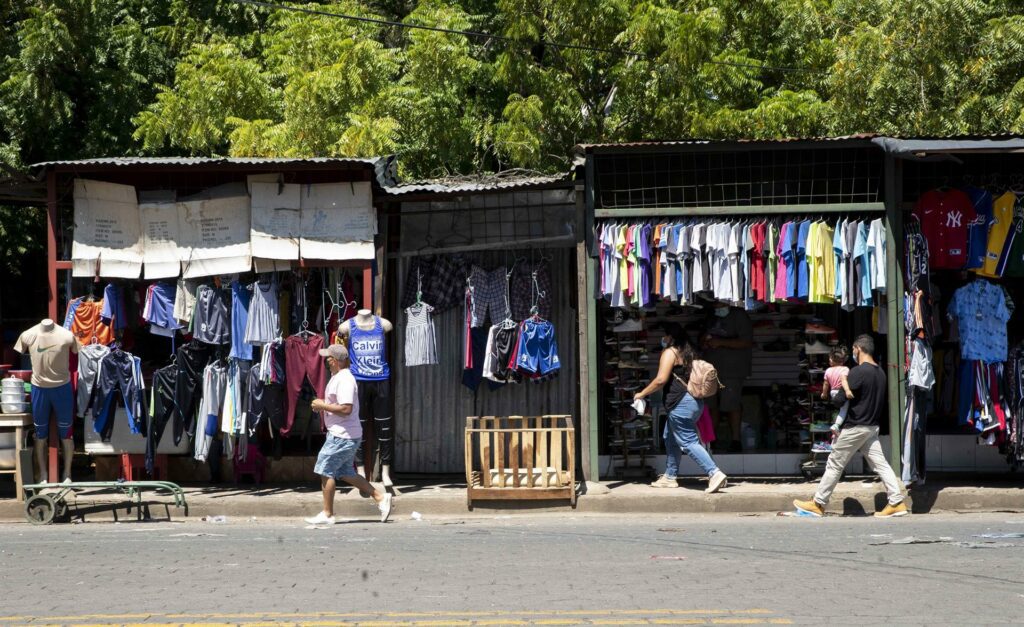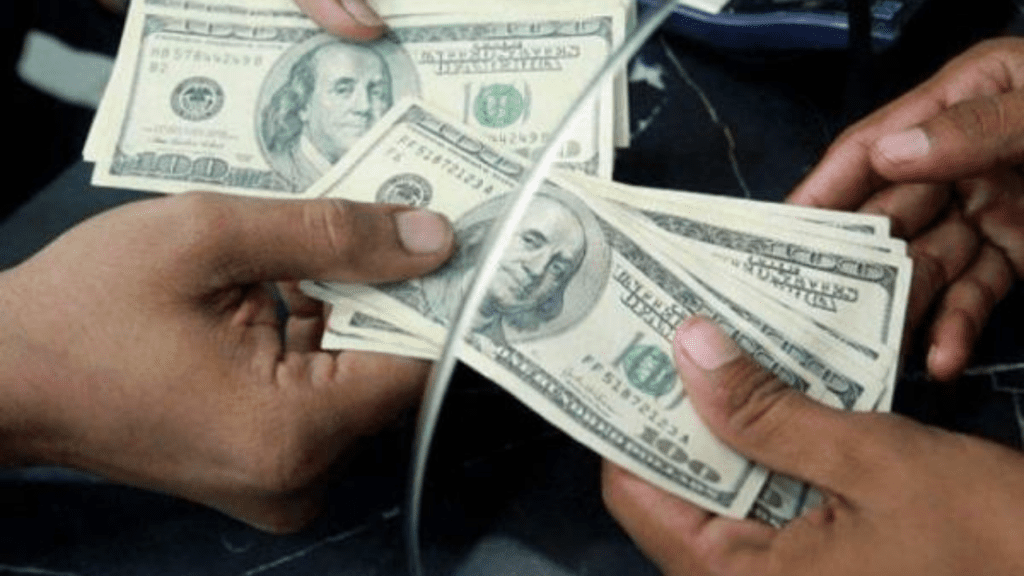The freezing of the official exchange rate at 36.6243 córdobas per dollar established by the Central Bank of Nicaragua (BCN) as of January 1, 2024, is not a reality in Nicaragua.
In the tug-of-war of the national economy, the truth is that the various financial and commercial institutions of the country have established different prices in their transactions with the US currency, determined by what is imposed by “the market and the streets”, a colloquial way of referring to supply and demand by a businessman consulted by DIVERGENTES.
Up to January 25, 2024, the purchase price in the banks ranged between 36.09 and 36.10 córdobas, while the sale price was between 36.95 and 36.99 per dollar. In other words, less than a month after the measure was taken, there has already been a difference of almost one córdoba per dollar at the exchange market.
Currency traders in Managua keep the selling price at 36.50, while the buying price is 37 córdobas. Some currency traders consulted by DIVERGENTES, assure that the value of the dollar in relation to the córdoba will be determined by the corporative banking, and this will not have a fixed price.
Recibe nuestro boletín semanal
“The difference between the banking system and us (currency traders) will be of about five cents of córdobas for each dollar, both in the sale and purchase”, explained one of them.

Frozen exchange rate is a reference
The president of the Central Bank of Nicaragua (BCN), Ovidio Reyes, acknowledged that the exchange rate set by this institution is only a reference for the market, but the people who are engaged in the activity of buying and selling foreign currency such as financial institutions and commercial establishments “have always established the selling exchange rate that best suits them”.
Reyes explained that should there be a considerable increase between the reference rate and the market rate, the BCN will start selling foreign currency to regulate the market.
“If there is a lot of fluctuation, we have enough foreign exchange to sell to the market,” Reyes said. “If there is an increase, we will immediately proceed to satisfy and balance the market,” he added in an appearance before propaganda media of the Ortega dictatorship.
The intervention referred to by Reyes is when the BCN injects or withdraws foreign currency from the market. That is to say, it sells or buys dollars to banks through the official exchange market.
Before, banks used the official exchange rate as a reference to vary their exchange rate, while now the rate will only change due to the dollar supply and demand.
If the BCN fails to stabilize, there may be a “sudden devaluation”
An economist consulted by DIVERGENTES explained that if the BCN does not manage to stabilize the currency -as Reyes assures- one of the possible consequences in a context of high inflation “would be a sudden currency devaluation, and that would be detrimental for the general population”.
The specialist said that it is necessary to know that the Nicaraguan exchange market is small, with few economic agents. This means that only one economic agent, for example, the banks, “can quickly modify the price, or they can negotiate with other agents the establishment of prices that help them keep the profitability that previously provided them with the exchange differential generated by the holding of assets in foreign currency or national currency with maintenance of value”.
According to the economist, who requested anonymity to avoid reprisals from the regime, this may be “a factor that makes the sale price more expensive and the purchase price of international currencies cheaper”, in a context in which there is a surplus of dollars in the economy.

Freezing benefits public management, according to the Government
The measure, announced four months ago, was decided by the Ortega regime with the argument that “it will contribute to the strengthening of the national currency and to compensate the effects of the high international inflation in the national economy, thus favoring the purchasing power of the population”, as reported by the BCN in August last year.
It was announced months in advance to provide greater exchange rate predictability and thus formulate the General Budget of the Republic, which must be submitted to the National Assembly no later than October 15 of each year; the NCB’s monetary programming and business planning.
In fact, the president of the BCN, Ovidio Reyes, said that the exchange rate will be frozen throughout this year for three reasons. The first, to apply to accounts and contracts in córdobas with value maintenance, which will be governed by that exchange rate. In other words, these will not be affected by the change.
The other reason is for when the BCN buys dollars from banks or other financial institutions, and in the process, to satisfy the demand for assets. These will be purchased at the official exchange rate of 36.6243. Finally, the measure will be used when public institutions want to pay debts in dollars and come to the BCN to buy in that currency. Such sales will be made at the frozen official exchange rate.

The consequences for economically average citizens
The economist considers that the real reason for the freezing is to “free the exchange market” for one year, since the BCN will not regulate the exchange rate negotiated between individuals.
The effects on the economy depend on the economic activity. For example, it may benefit importers because they buy products in dollars and this will have less exchange pressure. However, exporters will not have income from exchange rate gains, precisely because the rate is frozen.
“One of the goals of freezing the exchange rate is to try to strengthen the córdoba, reducing the effects of inflation and external events that generate more inflation,” the economist added.
However, the main losers could be citizens with fewer resources. For example, economists agree that the freeze does not benefit recipients of remittances, retired people (because they will not have salary adjustments due to the annual adjustment) and individuals earning in dollars, because their purchasing power may decrease if inflation exceeds the rate of devaluation of this currency. In other words, they would lose if product prices continue to rise, and the price of the dollar does not rise.
“As the freeze could benefit importers, this could generate inflation associated with the increase in imports, and this could affect economic stability and the value of the córdoba, with which the BCN would not achieve the objectives for which it implemented the freeze,” the economist explained.
Remittance receivers may lose purchasing power
Remittance recipients may lose purchasing power if product prices continue to rise and the córdoba remains more or less fixed in relation to the dollar. “As this is a possible consequence, this could discourage the sending of remittances, since people outside (abroad) will think that it is not worth sending remittances, because they are losing,” the expert said.
The impact in this sense is not minor. The last report of the International Monetary Fund (IMF) pointed out that remittances helped Nicaragua’s economy to have a 3% growth.
As of September 2023, Nicaragua’s total remittances amounted to US$3 433.5 million, a figure higher than those received in 2022 (US$3 224.9 million).
The IMF explained that remittances accounted for 28% of Nicaragua’s Gross Domestic Product (GDP) in 2023, together with exports. This means that they represent almost a third of Nicaragua’s GDP, a percentage that has doubled since the end of 2021.
The Fund concludes that remittances “are driven by the rapid increase in Nicaraguan migrants.” The Inter-American Dialogue, estimates that after the political crisis began in Nicaragua in 2018, more than 600,000 Nicaraguans have migrated, 9% of the country’s total population.
The director of the Migration, Remittances and Development program of the Inter-American Dialogue, Manuel Orozco, said that Nicaragua’s economy is sustained by the massive expulsion of Nicaraguans because of repression and the political crisis. “Nicaragua’s main export product is people,” Orozco concluded.

